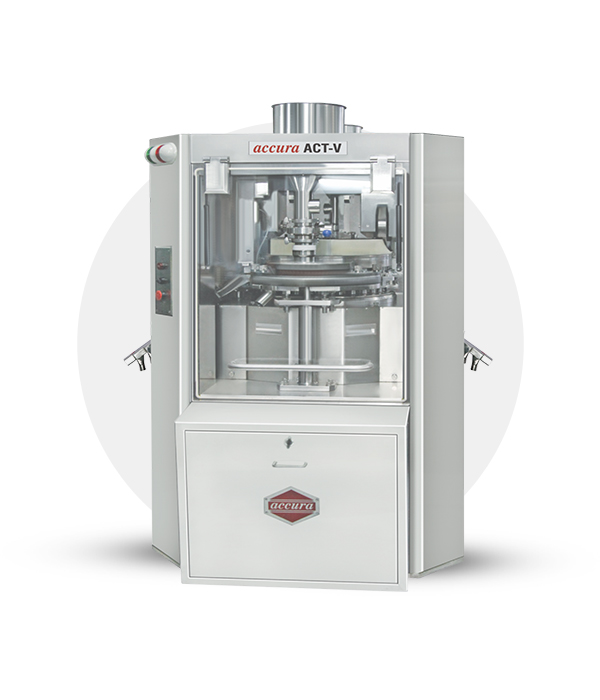The pharmaceutical industry is constantly evolving to meet increasing global healthcare demands. Alongside growing product complexity and regulatory requirements, manufacturers must focus on reducing production cycles. One of the most pivotal enablers of this shift is the use of pharmaceutical tablet press machines.
For every pharmaceutical machinery, speed without sacrificing quality is the new benchmark. Modern tablet presses are no longer just mechanical compression units-they are integrated systems optimized for volume, compliance and consistency. As a result, they are redefining efficiency across small-scale labs and large-scale manufacturing plants alike.
Reducing Production Time Through Tablet Press Innovation
Time is a critical resource in pharmaceutical manufacturing. Advanced pharmaceutical tableting machines are designed to compress powders into uniform tablets faster and more accurately than traditional systems. Their engineering focuses on both output and operational continuity.
Key Contributions to Time Reduction:
- Higher output rates due to multi-station turrets
- Fewer interruptions through predictive maintenance systems
- Quicker changeovers enabled by modular design and intelligent HMI
- Integrated weight control to reduce rejection and reprocessing
These innovations support not just faster output but also smoother regulatory inspections, fewer production errors and better resource optimization-helping both exporters of pharmaceutical machinery and manufacturers deliver consistent performance.

Minimizing Downtime with Automation and Real-Time Monitoring
Unexpected machine stoppages can derail entire production schedules. Automated pharmaceutical tablet press systems now incorporate built-in diagnostics, self-adjusting compression rollers and integrated safety systems.
Advanced machines automatically calibrate tooling pressure and adjust feeder rates in real time. These features reduce manual intervention and allow line operators to focus on oversight rather than troubleshooting.
Operational Advantages:
- Auto lubrication systems to minimize wear
- Rejection tracking for non-compliant tablets
- In-line quality checks during production
- Easy-to-replace tablet press tooling components
Manufacturers benefit by maintaining continuous operation with minimal delay, ensuring batch integrity and reducing loss associated with downtime.
High-Speed Compression Meets Quality Assurance
Modern facilities require a balance of speed and precision. A pharmaceutical tablet press machine must maintain tight control over compression force and dwell time, especially in formulations with narrow processing windows.
Rotary tablet presses, particularly, allow multiple tablets to be produced simultaneously at each turret station. This setup dramatically increases output while maintaining uniform tablet weight and thickness.
When sourced, these presses come with electronic feedback loops that continually measure and correct variations-ensuring real-time quality control without halting the process.
Tooling and Configuration Flexibility for Multi-Product Manufacturing
Time loss often occurs when switching between product batches. That’s why presses with flexible tooling systems offer significant advantages. A single unit, when equipped with interchangeable tablet press tooling, can handle a range of tablet shapes, sizes and materials. This capability eliminates the need for multiple machines or long setup times between production runs.
Whether it’s a rotary tablet press for continuous batches or a single punch tablet press for specialized production, this flexibility is vital for manufacturers managing diverse product portfolios. It helps maintain short lead times without compromising on production volume or quality.
Global Manufacturing Demands and Scalable Machine Design
The growth of international pharma markets has led to increased demand for standardized equipment that can be quickly deployed, scaled and validated. For any pharmaceutical machinery, offering machines with modular builds and compliance-ready features is no longer optional.
Machines are now developed to support:
- Modular assembly and disassembly
- Region-specific regulatory standards
- Digital batch logging
- GMP-aligned enclosures and user access controls
This shift has made global collaboration between exporters of pharmaceutical machinery and manufacturers much more efficient, especially where fast market entry is critical.
Integrated Technology for Seamless Operation
Digital integration within a pharmaceutical tablet press streamlines multiple production activities-blending, compression, coating and packaging. Modern systems interface with enterprise resource planning (ERP) software, allowing production teams to track real-time metrics.
Such features cut manual reporting, reduce downtime caused by human error and support better decision-making across departments.
This transformation is evident across operations managed by both multinational players and local pharmaceutical machineries manufacturers, who now incorporate smart analytics into standard machine configurations.
Single Punch Presses in Niche Production
While large-scale production dominates industry headlines, there remains steady demand for single punch tablet press units. These machines are essential in research environments, pilot plants and for limited-batch production of specialized drugs.
Their fast setup, ease of use and low maintenance needs make them ideal for reducing time in product development cycles, formulation trials and high-potency drug handling.
They may not match the volume of a rotary tablet press, but their role in accelerating early-stage production is irreplaceable.




